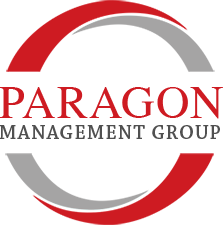How do I make a payment?
eCheck and Credit Card Payments (One-time or Recurring)
You will need to log in to make a payment on your account by eCheck or credit card. Click the “Log In” link on the upper right side of our website. (You will need to register if you haven’t logged in before). Please note that there is a third-party processing fee for eCheck and credit card payments.
Automatic Draft
You can sign up for automatic draft by filling out this form and mailing it to our office: ACH Authorization Form. Drafts will occur on the 5th of each month.
By Check
Please make your check payable to your association and mail to:
[Your Association Name]
c/o Paragon Management Group
PO Box 906
Commerce, GA 30529.
Please be sure to write your account number on the check and include the coupon or payment stub if you have it.
What is an HOA?
What is the purpose of an HOA?
What are Governing Documents?
Homes (and their owners) in HOAs are bound by the community’s governing documents which outline the responsibilities of the HOA and the individual owners. The governing documents go by many names, including:
- Restrictive Covenants
- Covenants, Conditions, & Restrictions (CC&Rs)
- Master Deed
- By-Laws
- Resolutions
- Rules & Regulations
- Fine Policy
- Collection Policy
Most HOAs will more than one of the items listed above. There are distinctions among these documents, but for simplicity’s sake, we usually refer to them collectively as each community’s “governing documents.”
What are common elements?
Common elements are parts of the community that are owned by the HOA. These might include fixtures and buildings, such as pools, fountains, playground equipment, and clubhouses. Also included are open areas, recreational spaces, streets, driveways, sidewalks, among others; these open spaces are often called “common areas” instead. The governing documents often have rules regarding these spaces that might not be apparent on their face. For example, the number of guests you can bring to the HOA’s pool may be limited. Or, a grassy area may belong to the HOA, but that doesn’t necessarily mean that homeowners are permitted to set up a tent for a party on the grounds.
For townhome and condo communities, these also include parts of the condo and townhome buildings themselves. Although it varies by neighborhood, generally, if part of the exterior of a condo or townhome building serves all of the homeowners, then it is considered a common element. If part of the condo or townhome serves only one unit, then it is typically not a common element and usually the responsibility of the homeowner.
Typical common elements include:
- Most structural elements (i.e. framing)
- Brick/siding
- Foundation (condos only!)
- Stairwells
- Open areas
- Pools
Typical items that are NOT common elements include:
- HVAC systems serving one unit
- Entrance lights
- Doors
- Windows
- Garage doors
- Exterior lighting (i.e. porch lights)
What are the responsibilities of a homeowner?
HOME AND LOT MAINTENANCE
Homeowners associations’ governing documents usually have rules requiring homes be kept in good condition and restrict the changes that can be made to the exterior appearance of a lot, including the home itself. Sometimes these rules can be quite specific. Most of those changes require preapproval from the association. Those restrictions often cover, among other things:
- Roofs
- Satellite dishes
- Lawncare and landscaping
- Tree installation and removal
- Recreational equipment
- Debris, trash, waste containers
- Paint color
- Mailboxes
- Architectural design and changes
- Fences
The general idea is to keep the look of the homes (and therefore the neighborhood) neat and uniform. Most homeowners keep their property in good condition all on their own, however, HOAs are in place to make sure everyone keeps up. It’s a good idea to check with the HOA before making any exterior change to your home in case it needs approval.
PAY ASSOCIATION FEES
Homeowners are required by the governing documents to pay fees on a periodic basis called “Association Fees.” (These are also referred to as assessments, condo fees, maintenance fees, and HOA fees).
Who runs an HOA?
What are the responsibilities of the HOA?
The homeowners association is responsible for:
- Enforcing the governing documents (as listed above)
- Collecting association fees
- Paying bills
- Following up with contractors
Disclaimer: Please note that the above FAQs are broad generalities. Each homeowners association is different and has different provisions and needs. Parts of this webpage are adapted from CAI’s Introduction to Community Living. The full document can be found here.
